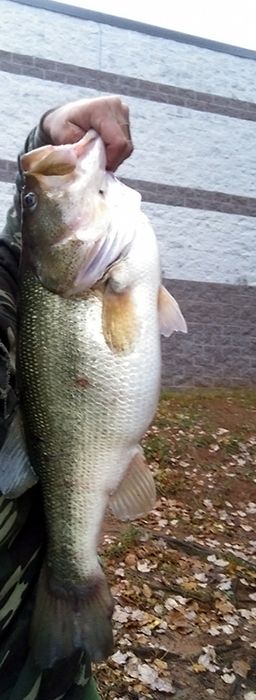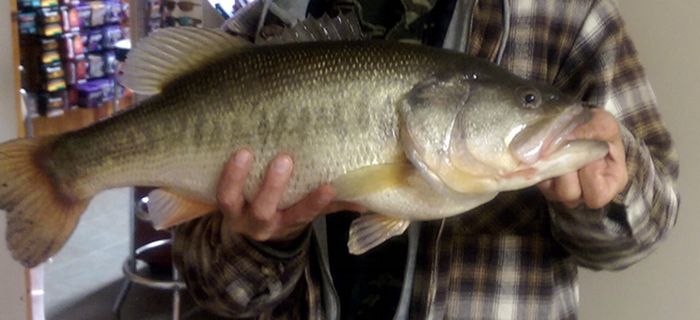Quote: "Most bass will never approach 10 pounds reguardless of how perfect the environment."" Ewest, our resident librarian, or other members can provide more data on this topic. I suspect the basic information in the quote probably came from a fisheries class topic or similar discussion.
If we take this exactly as it was written, then IMO it is correct. Most bass in each year class, probably 99.8% or higher, die due to various forms of mortality, most often predation and often harvest before that fish or a few of its siblings become a trophy. Dr. Willis in his Pond Boss articles occasionally discussed this fishery mortality characteristic. Years ago I also posted a lengthy note about fish mortality.
http://www.bassresource.com/fish_biology/mortality_rates.htmlVery few bass and likely all fish species live long enough to even reach the 10 lb status which often takes 7-10 yrs or longer. Many of the older larger individuals are harvested by anglers. Old bass are not always big bass. Sometimes a 13 yr old bass can weigh less than 3 pounds. One if not both of the bass pictured above were probably harvested, thus they will never make the 10 lb mark. Many influences occur during the 7-10 years to 'cut' life short or suppress growth rate. There are other past forum discussions about what it takes to grow trophy bass. See the Archives for more big bass topics.
If one implies additional meaning from "Most bass will never reach 10 lbs ..." to mean 'if all siblings lived' then there could be lots of room for discussion.
Other related topics include size and age specific harvest mortalities. Often anglers crop the fastest growing and most aggressive fish in a cohort group. This results in a shift in the population toward slower growth and earlier mortality over time. Fish kills are another big cause of random mortality. Older larger fish are the first to die when DO becomes limiting.
As most of the members know for a fish to reach trophy status lots of "stars" need to align properly. Ponds are very dynamic and constantly changing not always for the optimum state or condition to grow trophies. A trophy bound fish needs ample food and the correct general sizes of food every day and have the right genes for best growth. Those needed foods change as the fish grows and ages. Truth be fully known the optimum nutrition needs may even change as that fish ages from fry to middle age, to "old timer". Availability of ample proper foods does not always happen. Often the food supply does not match the needs of the trophy bound fish or number of fish living in that habitat, thus there can be numerous "hiccups" in the growth of that trophy bound fish.
Disease and water quality are also constant hurdles to overcome during the trophy bound life span.
Release of trophy bound fish is important, but proper handling is even more important to that particular fish. What happens to that trophy bound fish that gets caught and mishandled by an angler, especially when the "bass" is in the final stages of trophy bound growth and the angler lifts that bass by the jaw and injures,cracks or breaks the jaw just by lifting that fish? Remember that fish rarely if ever 'feels' gravity in his weightless environment. A big fat bass is not 'designed' to be lifted by the jaw. A released injured fish is likely to die or waste away. The trophy pathway is now ended.
More reading about mortality:
http://www.cfr.msstate.edu/students/Wfpa...tory%20mort.pdf Previous PBoss thread - mortality:
http://forums.pondboss.com/ubbthreads.php?ubb=showflat&Number=22339#Post22339In PA - ""On average the total annual mortality rate for adult largemouth bass is 58 % annual mortality is 60% for adult smallmouth bass, these include annual losses due to fishing and loss due to natural circumstances such as predation and disease."" This means that each year a large percentage of that age group dies due to natural and angler mortalities. Very few fish in that age group remain after 6-10yrs of a significant amount of mortality each year. If a pond has too many big fish survive each year will there be enough and adequate amount of large easy to catch foods available DAILY to keep them growing? Thus the statement "Most bass will never approach 10 pounds regardless of how perfect the environment."

